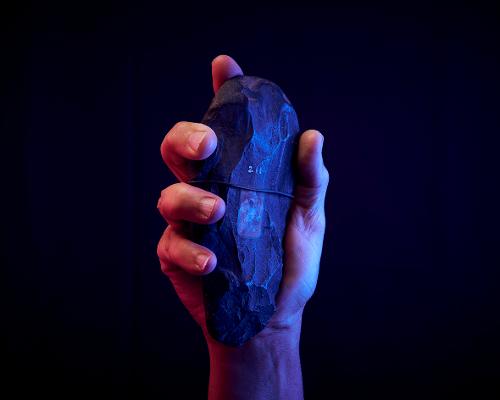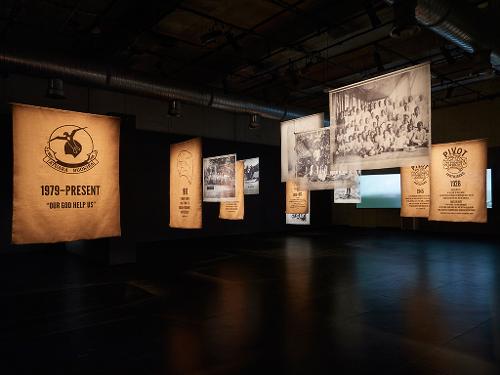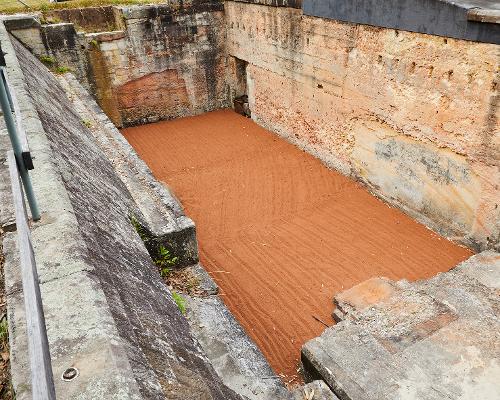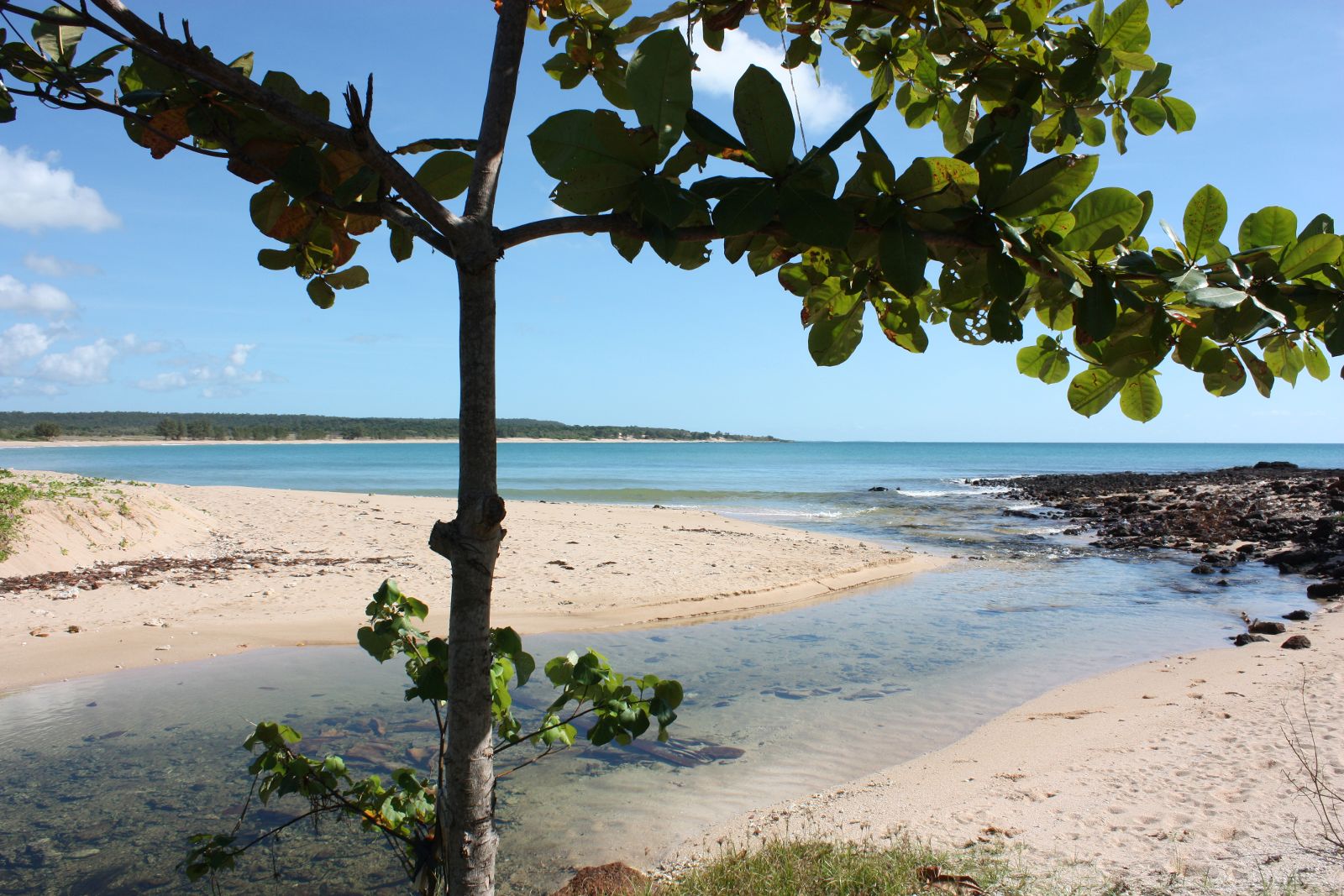
Dr Marika has been celebrated on the pages of Artlink for over thirty years as a pioneering printmaker and artist and an outspoken advocate for her people and their intellectual property rights. In a 1990 interview for the magazine’s double issue on contemporary Australian Aboriginal art she made the point,
Well, I think that, if Europeans can look back on their own copyright laws which exist in European law today, it is similar to the Aboriginal people, but the clan holds the rights to the art.[1]
Published four years before the Federal Court of Australia awarded damages to Marika (and seven other artists) for theft of original artwork designs, Marika’s words are evidence of her cultural and political leadership. While the compensation by the overseas company was never paid, the case was a ground-breaking legal victory and testament to Marika’s stamina and focus. Her contribution to the social, creative and environmental work of ‘visualising sovereignty’ was lifelong. Terri Janke captured the sense of collective loss in very personal terms in July 2021:
Thank-you, Dr B. Marika, AO
Dr Marika, Rirratjingu woman from Yirrkala, the last living applicant of the Carpets Case passed away last week. I am devastated. I can’t believe it. She was one of my heroes.
A positive, forward thinking woman, she taught me about Indigenous copyright and continued to teach me since I was a young lawyer working on the carpets case, Milpurrurru v Indofurn in 1995. Dr Marika really inspired me to work in Aboriginal copyright. She was the only woman applicant, and her voice was strong in culture and also strong for whitefella law reform. She let me write articles and case studies about her. She gave her time teaching people how to understand culture. She fought for artists rights, spoke up for land rights and women’s rights, and caring for Country, looking after people, and the youth.
Dr Marika was celebrated. She had a doctorate, an Order of Australia Medal and many other honours. She was a graduate of the Canberra School of Art, and was the first Indigenous Council member of the National Gallery of Australia. She leaves children, grandchildren and great grandchildren who she spoke about often. I send my greatest condolences. She leaves friends and colleagues who will miss her insights. She leaves her works in our national and state collection. Her story is in legal journals and listened to by international organisations including the World Intellectual Property Organisation who acknowledged her passing and her contribution at the recent Intergovernmental Committee on Intellectual Property and Genetic Resources, Traditional Knowledge and Folklore. She held our attention with the way she could tell a story.
Dr Marika and I stayed in contact continuously throughout the years. My firm did a number of pro bono matters for her during this time. I advocated to government inquiries with her. In 2001, I nominated her for a Red Ochre Award, which she, of course, won. It was a well-deserved accolade. We recently worked on a matter for her which took me back to the days of working on the carpets case.
I am so proud to have known her. I am proud to have her intricate works on my wall. They are the story of her country. They tell the story of her backbone. I love these works, but I can’t look at them now. Not while I am so sad. Dr Marika’s family have asked for her name, image and her art not to be shown during cultural mourning period.[2]
I am forever indebted to this graceful woman. I hope to continue her legacy for the protection of Indigenous cultural and intellectual property.
Much love and respect for her spirit. She will always shine bright in my memory.
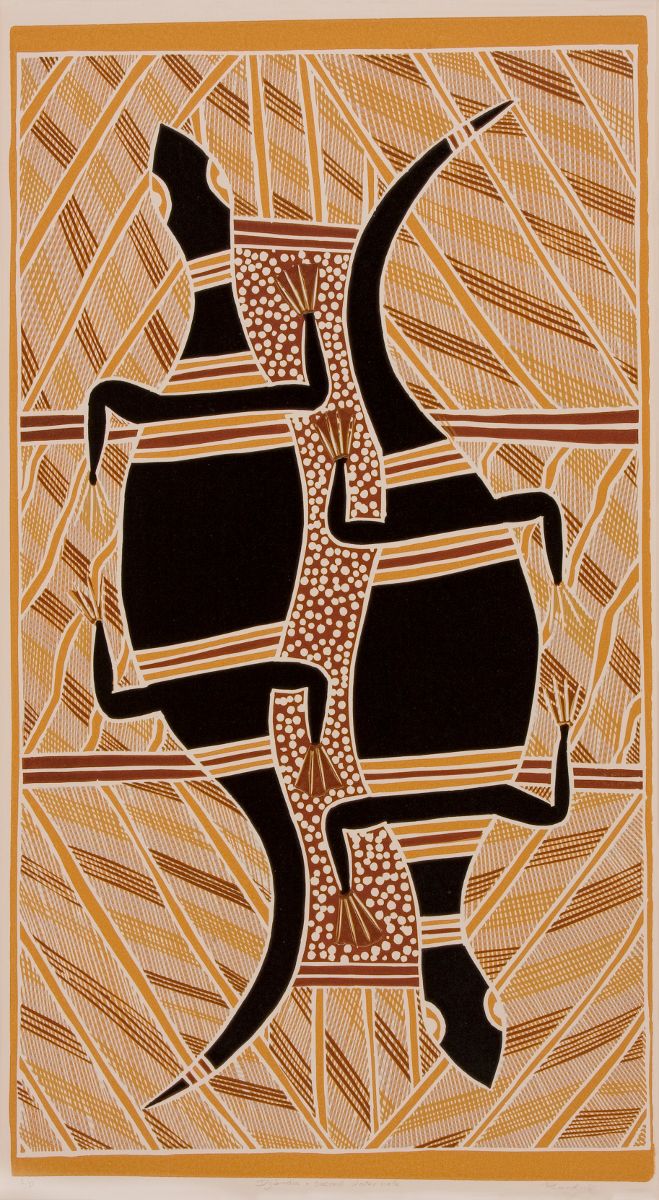
Footnotes
- ^ Marika in “An Artists Project: Banduk Marika talks to Margie West”, Artlink 1 & 2: Autumn/Winter 1990 (1992 reprint), 4
- ^ Terri Janke’s personal tribute was first published online here https://www.terrijanke.com.au/post/thank-you-dr-b-marika-ao soon after Marika’s passing, and is reprinted here with permission. Artlink has liaised with Marika’s family and Buku-Larrnggay Mulka Art Centre in preparing this tribute and approving images for print here. Interstate border restrictions due to the COVID-19 pandemic have impacted on funerals and Sorry Business in Yirrkala and other remote communities, as they have worldwide.




